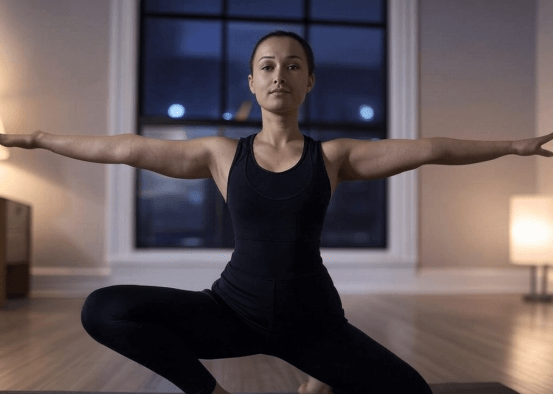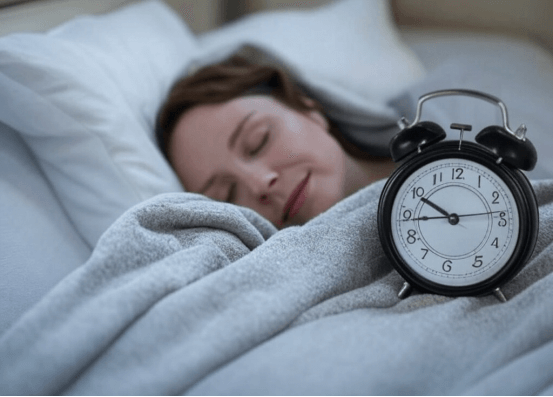Best Reviewed Techniques to Improve Sleep Quality
Sleep disorder has manifested into an epidemic in the race of life—an “silent epidemic“—of today. According to estimates by the WHO, 27% of the population has some form of sleep disorder; among these, it could exceed, for some, 40%, as happens with workers subjected to stress or students subjected to intense pressures. The offenders are fairly well established: round-the-clock work demands, annoying screen light, variable timing rituals throughout the day, and information overload damaged the quality of our sleep. Bad sleep not only knocks us out it also sidetracks the self-healing of the body and the head and thus disturbs the mind in confidence, leading to depression, anxiety and other confused states of thought. People who have a desire to lead a healthy, wholesome life, better sleep is what tops their want list Man knew the need of sleep from a long time ago. By none more than the ancient Greek philosopher Aristotle was sleep dubbed “nature's rejuvenation,” the restorative that replenished man. We now have physical evidence from scientists to show that sleep does aid our brains in coding our everyday encounters, and as such fortifying our memory.
In a world that continues to snowball into an insomniac reality, how does one reclaim sleep-safe evenings? Here, I'll highlight some popular methods and a few surprising ideas to synthesize research and experiential tips to hone sleep quality. First of all, we'll start with nostrums that everyone can try, before we turn to some radical diversions that might cure far more formidable sleep challenges. Finally, we would conclude with customized recommendations for you to get these approaches best fitted to your particular situation.
Practical Ways to Improve Sleep Quality
One of the best sleep fixes is already in many people's routines. These techniques modify your environment, habits and diet to establish a regular sleep cycle. Here are six evidence-based strategies, along with actionable steps, that have proven effective.
Maintain a Regular Sleep Routine
And a predictable sleep routine is the foundation of sleeping well. The body's internal clock, or circadian rhythm, is regulated by a tiny part of the brain, the suprachiasmatic nucleus (SCN). This system depends on constancy, synchronizing with light, temperature and our daily actions. Research (one from the Journal of Sleep Research, for example) shows that people who go to bed and wake up at the same time every day take about 20 minutes to fall asleep and get 15 percent more deep sleep than those with chaotic schedules.
The catch? Modern life loves to throw us curveballs — like sleeping in on the weekends to “catch up.” This habit, known as “social jetlag,” emulates the sleepy effects of crossing time zones and disrupts your rhythm. Experts recommend maintaining your wake-up times — even on days off — within an hour of your usual routine to help your sleep stay on course.
How to Do It:
Choose a bedtime (11:00 PM, for example) and a wake-up time (7:00 AM, say) and retain those both for a month to anchor the habit. Use a gentle alarm, and no snooze, to wake up sharply. If you work late one night, take a 20-30 minute nap the next day, but don't let yourself sleep in late—it keeps your clock in check.
Create a Sleep-Friendly Space
Your bedroom can either help or hurt your sleep. Science says we renegade into deep sleep — the stage when our bodies repair and our minds file things into order — more readily in a dark, quiet, cool room. The magic temperature numbers are 18–22°C; anything too hot or cold disrupts the natural drop in body temperature (around 0.5–1°C) that marks sleep onset.
Light matters a lot, too. Blue light from screens or bulbs douses melatonin, the hormone that signals sleep. Bright light, when given before bedtime, delayed sleep, by as much as 90 minutes, and decreased dreams, rich REM sleep, according to research published in the Proceedings of the National Academy of Sciences. Noise is another sneaky sleep disrupter — even quiet sounds can rouse you without your being fully aware of it.
How to Do It:
Use blackout curtains or wear an eye mask to block out light. Just use a white noise machine or earplugs to drown out your creaky floors or city sounds. Invest in a mattress and pillow that support your spine properly so you're not waking up stiff.

Skip Evening Stimulants
Caffeine, nicotine and large meals are the enemy of sleep. Caffeine keeps your wired by blocking adenosine, a chemical that accumulates to make you drowsy. That afternoon latte can still haunt you at midnight, with a half-life of 4-6 hours. In the Journal of Clinical Sleep Medicine, a study offered this: caffeine even six hours before bed robbed an hour of sleep and left people tossing and turning in lighter rest.
Long or heavy dinners do their own damage — greasy or spicy foods can ignite heartburn or indigestion, keeping you up. And nicotine? It is a balm for your heart and nerves, which makes winding down a challenge.”
How to Do It:
And forgo coffee, tea or soda after 2:00 PM; try a calming cup of chamomile tea instead. Have dinner three hours before you go to bed, and eat lightly, like oatmeal. Don't smoke at least two hours before you go to bed if you do.
Move Your Body Regularly
Exercise is a sleep aid you can count on. This releases feel-good chemicals such as endorphins and serotonin, which help relieve stress and prepare your body for deeper rest. The journal Sleep discovered that moderate activity—150 minutes a week of walking, swimming, etc.—helped subjects fall asleep 15 minutes sooner and wake up at night 30 percent less frequently.
Timing's key, though. Intense workouts near bedtime raise your heart rate and body temperature, which keep you awake. Those are better saved for the earlier part of the day; gentle stretching or yoga will be more beneficial at night.
How to Do It:
Try for 30 minutes of activity each day, such as a morning jog or afternoon bike ride. Avoid heavy workouts within two hours of bed—10-15 minutes of yoga will suffice. Accompany exercise with sunlight to help reset your internal clock.
Cut Back on Screens
Screens are sneaky sleep thieves. Their blue light convinces your brain that it's daytime, cutting melatonin. One Journal of Applied Physiology study found that two hours of screen time in the hour before bed reduced melatonin secretion by 22 percent and delayed sleep onset by 30 minutes. Also, scrolling through feeds or gaming fires up your mind right when it's supposed to be winding down.
How to Do It:
Turn off devices an hour before sleep; read a book or listen to soft music instead. Use night mode or also blue-light glasses if you can't avoid screens. Make your bedroom tech-free to separate bed from stress.
Wind Down with Relaxation
Meditation and breathing exercises is gold for a busy mind. They turn down cortisol (the stress hormone) and activate your body's chill mode. In one study published in the journal Research in Behavioral Sleep Medicine, 10 minutes of mindfulness practice before bed decreased sleep onset by an average of 12 minutes and increased quality of sleep by 20 percent. Another technique, progressive muscle relaxation, helps relieve tension by tensing and relaxing muscles one at a time.
How to Do It:
Meditate for 5-10 minutes — on your breath or soft sounds. Try this breathing trick: 4 seconds in, 7 seconds hold, 8 seconds out; repeat this 4-5 times. Can't stop thinking about something? Write it down to clear your mind.
Sleep Hacks You Might Not Know
For persistent sleep issues or atypical schedules (like night shifts), these unconventional tactics might do the trick. At the same time, they graze more deeply into your body, mind and environment.
Try Aromatherapy
Essential oils, such as lavender, engage your sense of smell to calm your system. Lavender's compounds — linalool and linalyl acetate — relax your heart and your nerves. A 2019 study in the Journal of Alternative and Complementary Medicine found that it increased deep sleep by 18 percent and reduced anxiety by 30 percent. So do chamomile and sandalwood, which relax muscles or elevate your mood.
How to Do It:
Diffuse lavender for 15-30 minutes before bed, or apply a couple drops to your pillow. If your skin's sensitive, dilute oils and rub on wrists. Play with an aromatic mix, from lavender to cedarwood, to get into your groove.
Use a Special Sleep Mask
In addition to blocking light, some masks also apply pressure on points of your body, like your temples, to calm you down, drawing on principles of acupuncture. A 2022 Sleep Science study found they reduced sleep onset by 10 minutes and increased deep sleep by 12 percent, particularly for anxious sleepers.
How to Do It:
Choose a cozy pressure mask that doesn't pinch your eyes. Or add a touch of oil to the inside for an extra chill kick. If it doesn't feel right, use a simple mask instead.
Control Your Temperature
Temperature is the switch that turns on sleep. Your core needs to drop by 0.5–1°C to fall asleep, and a room kept at 18–22°C aids that. In Sleep Medicine Reviews, that setup sped up sleep by 15 minutes and reduced wake-ups 25 percent. Cooling your feet or neck works quickly, because of all those blood vessels.
How to Do It:
Ventilate the room with a fan or AC, particularly during summer time. Apply a cold pack to your feet or neck for 10 minutes before bedtime. Keep to fresh cotton sheets to keep cool.
Time Your Exercise Right
Chronotherapy aligns workouts with your body clock. Morning sunlight exercise stirs melatonin just right — useful for jet lag or weird shifts. A Chronobiology International study in 2021 recorded 20 additional minutes of deep sleep from 30-minute morning sessions.
How to Do It:
This could mean getting out and hitting the pavement between 7:00-10:00 AM for maximum daylight benefits. 3-4 times a week, moderately jog or bicycle. If not, try 4:00-6:00 PM, but no later.

Meditate Before Bed
Mindfulness silences your brain's boisterous chatter, and so snips anxiety. A 2021 study found 10 nightly minutes accelerated sleep onset by 15 minutes and improved quality by 25 percent — ideal for stress-driven insomnia.
How to Do It:
Check out an app like Headspace for a 5-10 minute guide. Do a body scan from toes to head, releasing tension. If focusing is a struggle, begin with 3 minutes, then gradually increase.
Wrapping Up: Make It Your Own
Better sleep is a process, mixing science and patience. Everyday fixes like consistent schedules, warm rooms and no late coffee primed most. There, quirky ideas — oils, masks, timed workouts — address trickier issues from different angles.
That's because we're all different so experiment. Mild-mannered night owls could nudge bed time earlier minute by minute with morning sun. Stressed? Lean on meditation or scents. Experiment with a few ideas for a week or two, then add others in as you feel the changes. Sleep isn't merely survival — it's the jump-start to a more lived life. Here's to discovering your way to restful nights.
